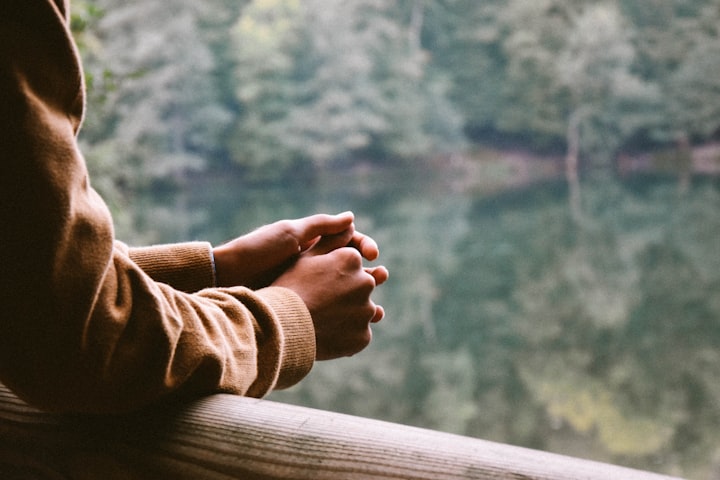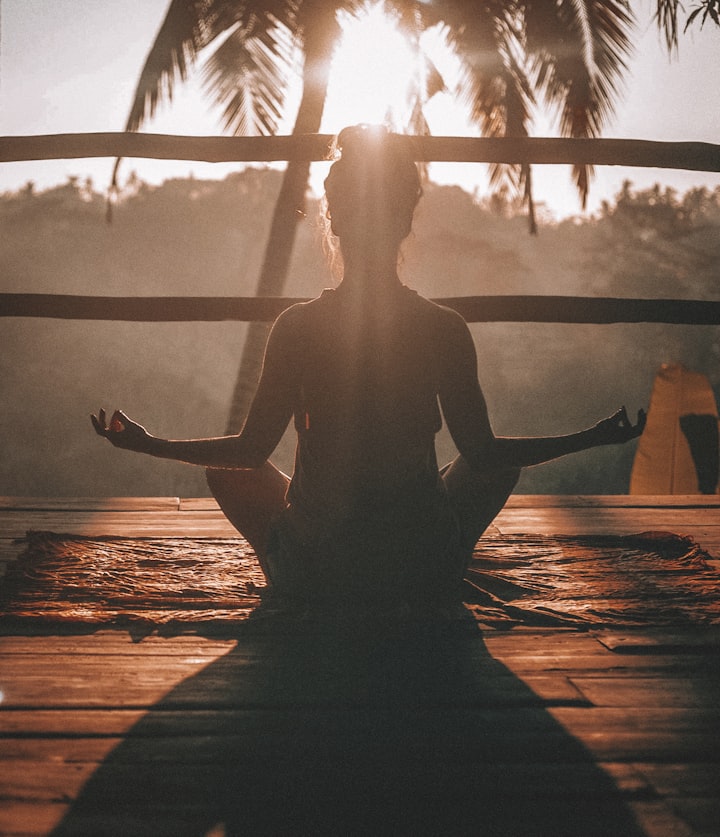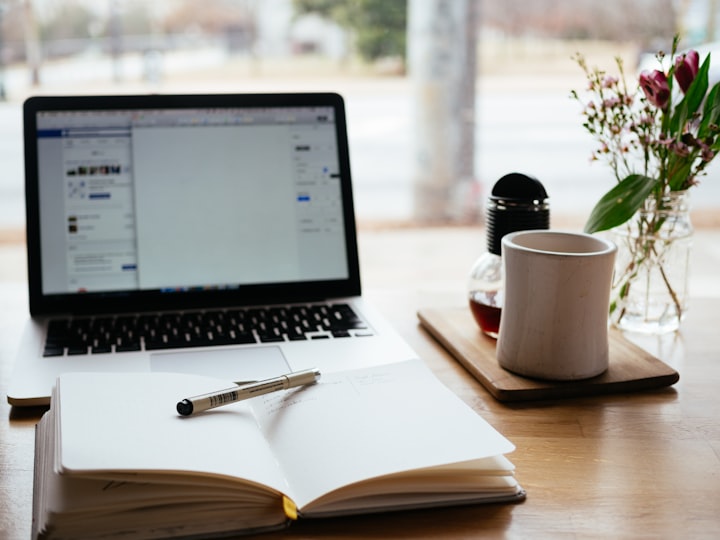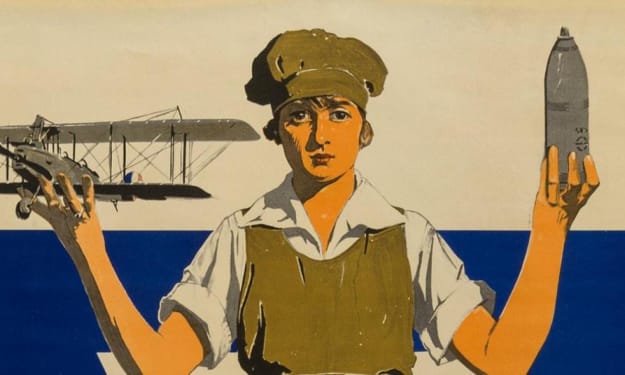How To Reflect on Past Relationships
The past is a wonderful reminder that things can always change, people (including yourself) can disappoint you but there's always next time.

We all know that reflection can help us learn and grow as individuals while preventing us from being stupid and ignorant of our past actions. When I put it like that, it's hard not to look at the ability to reflect on the past as an incredible superpower we have!
Regardless, we all have relationships in our past that we think would be better left... in the past. It's much easier to push those thoughts away and try not to think about them. It's common to feel guilty, sad, or angry when we think about someone we miss.
Maybe a falling out with your significant other lead to seeds of doubt being planted in one another's heads then the next thing you know, bags are being packed.
It can be tough to revisit these memories. Still, unless you want to walk into your next relationship with the possibility of the same events occurring, reflection will surely be your best bet!
If you want to learn and grow from your past, then it's time to learn how to reflect healthily and effectively. In this article, we'll be exploring how to take the time to ask ourselves questions about each past relationship, so we can gain a better understanding of what went wrong and why. This knowledge can then help us form healthier and more fulfilling relationships in the future.
How can reflection help us to learn and grow as individuals?
When it comes to reflection, it's not just about looking back on our past and noting the mistakes we've made. It's also about looking back on our past relationships and understanding why they ended.
This can be incredibly helpful in preventing us from making the same mistakes in future relationships.
By taking the time to reflect on our past relationships, we can learn a lot about ourselves. We might, for example, realize that we're attracted to people who are unavailable or that we tend to get into arguments with those who share our views.
We might not have realized these things without taking the time to reflect on our past.
By understanding why our past relationships ended, we can work on repairing any damage done and start fresh in a new relationship. We'll also have a better idea of what we're looking for in a partner, which can help us be more selective when choosing someone new.

Revealing parts of ourselves that need to change
The nature of change is inevitable for all human beings alike, but thanks to the ability to reflect, we can choose to face it willingly or unwillingly.
It's a lot like going to the gym. We can avoid it and stay the same or go and better ourselves. No matter how you look at it, change will always happen, but through reflection, we can learn to control how it shapes us, keeping the parts that help in the pursuit of our goals while disposing of the parts hindering us.
There are different aspects of our lives that we can change, such as our behavior, mindset, and even our relationships with others, but it all starts with recognizing that a change needs to be made in the first place. From there, it's a matter of taking small steps each day to work towards that change.
Seeing how our words reflect our actions.
One of the most common things people learn from reflection is how their words and actions are often two different things. For example, someone might say that they're a patient person, but in reality, they find themselves getting easily frustrated.
By reflecting on times when they've lost their patience, they can start to see the patterns and work on changing them.
It's easy to say one thing and do another without even realizing it, but when we take the time to reflect on our past AND hold ourselves accountable, it becomes much easier to see the discrepancy.
Preventing past mistakes from repeating.
This is the most common reason people choose to reflect on their past, to prevent the same mistakes from happening again. We've all been there, making the same mistakes repeatedly in our relationships without learning from them.
For example, you may find yourself in relationships with people who regard your kindness as a weakness. After thinking about why this occurrence is so prevalent, it will be easier to see any negative patterns and work on fixing them.
You may need to be more assertive in your relationships, or you may need to work on setting boundaries. Whatever the case, reflection can help you learn from your mistakes and prevent them from repeating in the future.
How do you reflect on past relationships in a healthy way that allows growth and healing?
When it comes to reflecting on our past relationships, it's essential to do so healthily. This means we should take the time to reflect on our own without blaming ourselves or others.
It's also important to be gentle with ourselves and not expect too much from ourselves.
If we're going to reflect on our past relationships, we should do so in a way that allows us to learn and grow. This might mean journaling about our experiences, talking to a friend or therapist about them, or even attending a support group for people who have been through similar experiences.
By taking the time to reflect in a healthy way, we can start to work through the pain and emotions that we may be feeling. We can also learn from our past mistakes and begin to form healthier relationships in the future.

Journaling about our experiences.
This can help us work through the emotions we're feeling and make sense of them. It can also be a way to track our progress as we heal and grow.
Here's a straightforward step-by-step process if you don't know where to start:
1. Start by writing about the relationship in question.
2. Write down how you felt during the relationship and how you feel about it now.
3. Identify any patterns you see in your past relationships.
4. Write down what you learned from the relationship and how you can apply that to your future relationships.
5. Finally, write down any other thoughts or feelings about the relationship.
Talking to a friend or therapist about them.
Talking about our experiences can help us to process them healthily. It can also be helpful to talk to someone who can offer impartial advice and support.
Others can give you a different perspective on your situation and help you see things you may have missed.
If you're unsure where to start, try talking to a close friend or family member about your experiences. If you don't feel comfortable talking to someone close to you, consider seeing a therapist or counselor who can help you work through your emotions.
Attending a support group.
Support groups can provide a safe and supportive space for people to share their experiences and learn from one another. If you're unsure where to find a support group, you can check with your local community center or mental health facility.
You can also search online for support groups in your area.
This can be a great way to meet people who have been through similar experiences. It can also provide a safe space to discuss our experiences and emotions.
What things should you ask yourself about each past relationship before moving on?
There are a few key questions that you should ask yourself about each past relationship before moving on. These questions can help you to gain a better understanding of what went wrong and why.
This knowledge can then help you to form healthier and more fulfilling relationships in the future.
Here are some of the questions that you may want to ask yourself:
-What was the relationship like?
-How did I feel during the relationship?
-How do I feel about the relationship now?
-What were the main problems in the relationship?
-What did I learn from the relationship?
-How can I apply what I learned to my future relationships?
-What are my thoughts and feelings about the relationship?
-How can I apply what I learned to my future relationships?
-What was my role in the problems in the relationship?
-What was the other person's role in the problems in the relationship?
-What can I do differently in future relationships?
-Do I have any unresolved feelings about the relationship?
If you're having trouble answering these questions, consider talking to a friend or therapist who can help you work through them.
Are there any potential dangers associated with reflecting on past relationships too closely or for too long?
Although reflection on past relationships can be helpful, it can also be harmful if we're not careful. If we focus too closely on our past relationships or dwell on them for too long, we may feel stuck or depressed.
It's important to find a healthy balance between reflection and moving on. This will allow us to learn from our past relationships while still enjoying life in the present.
Here are a few tips for finding this balance:

Reflecting on past relationships too closely.
Reflecting on every detail of our past relationships can be harmful. If we focus too closely on what went wrong, we may start to blame ourselves or the other person.
This can lead to feelings of self-doubt, depression, and even anxiety.
Sadly this is very common, especially for those of us who have been through a difficult break-up or are high in neuroticism. We may go over the relationship again and again in our minds, trying to figure out what we could have done differently.
However, this is not healthy and will only lead to more pain.
Remember that what happened was not entirely your fault and that you cannot change the past. Instead, apply the experience to the present or, even better, your future relationship.
Reflecting on past relationships for too long.
Just as reflecting on our past relationships too closely can be harmful, so can dwelling on them for too long. If we stay within our past relationships, we may start to feel stuck in the past.
This can lead to feelings of sadness, loneliness, and even anger. The danger doesn't reside within the emotions themselves but instead ACTING upon those emotions!
We may compare our current situation to our past relationships. We may long for the "good old days" or try to recreate what we had with our ex. However, this is not a constructive coping mechanism and will only amplify your hurt.
Remember that you are in a different place now and owe it to your future self to move on. Focus on the present and build a bright future where you don't repeat the same mistakes.
Key Takeaways:
Think about what would be best for your future self before taking action.
The goal is to learn from past relationships so that we can have healthier and more fulfilling relationships in the future.
Reflecting on our past relationships can be helpful, but finding a balance between reflection and moving on is crucial. If we focus too closely on our past relationships or dwell on them for too long, we may feel stuck or depressed.
Once again, If you're having trouble finding a balance, I recommend talking to a friend (with your best interest at heart) or a therapist who can help you work through your thoughts and feelings.
Bottom Line:
No matter how we go about it, reflecting on our past relationships is integral to learning and growing as individuals. By asking ourselves questions about each past relationship, we can better understand what went wrong and why.
This knowledge can then help us to form healthier and more fulfilling relationships in the future.
However, reflecting on past relationships can also be harmful if we're not careful. If we focus too closely on our past relationships or dwell on them for too long, we may feel stuck or depressed.
It's important to find a healthy balance between reflection and moving on so that we can learn from our past relationships while still enjoying life in the present.
I hope this article was helpful. If you have any questions or would like to share your own experiences with reflection, please leave a comment below. I wish you all the best in your journey of self-discovery!
____________________________________________________
Why not read a story like this for YOUR business and get my support as an exciting B2B Mindfulness Copywriter? Check out the website for more information.
About the Creator
Jerrell John
A visionary constructing his life purpose as an Author/Educator by building an impactful personal brand (& documenting the process).






Comments
There are no comments for this story
Be the first to respond and start the conversation.